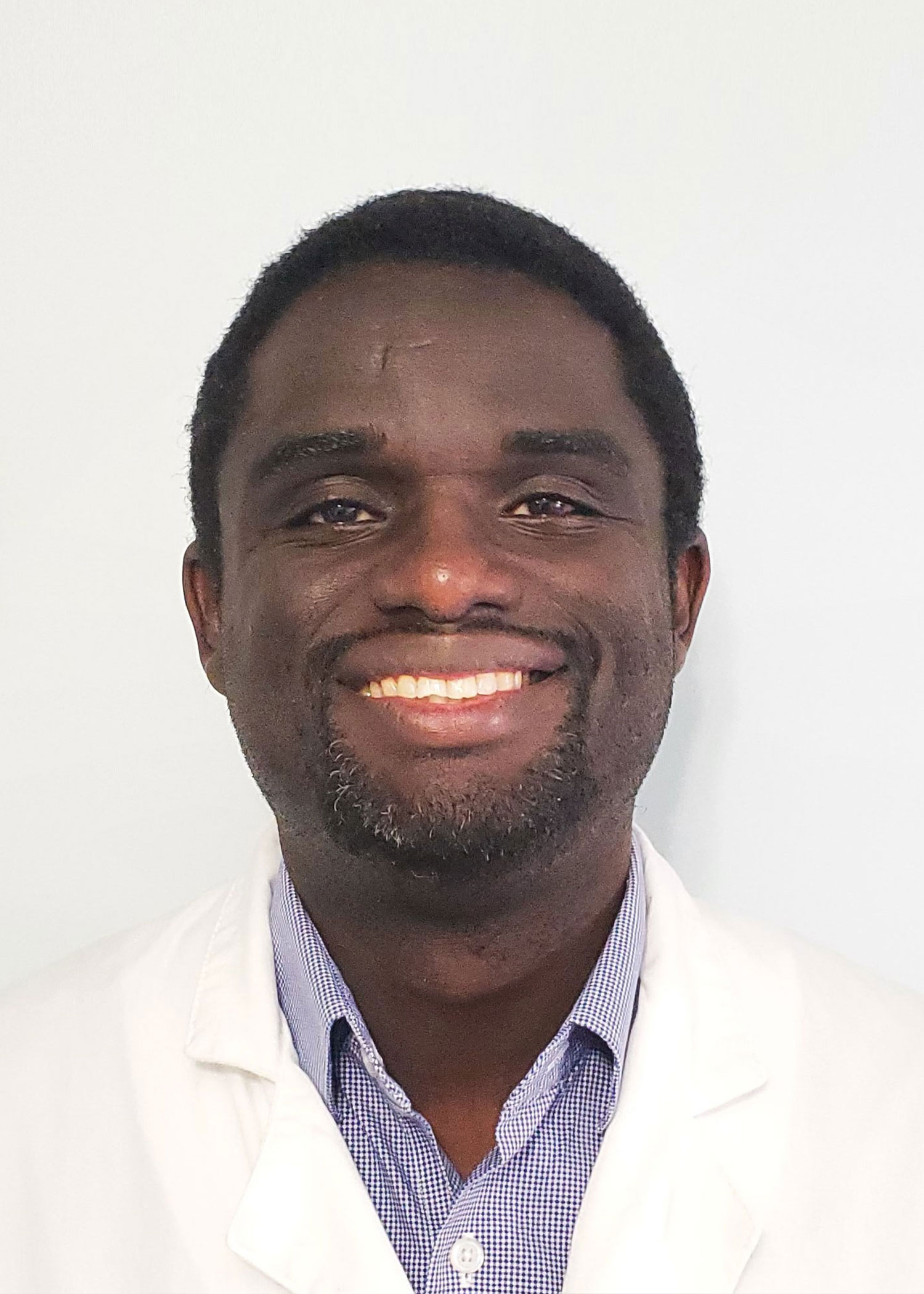Physics Residency
Therapeutic Medical Physics Residency
The Novant Health Cancer Institute Therapeutic Medical Physics residency program is a CAMPEP approved two-year training program based on guidance from the American Association of Physicists in Medicine (AAPM) Task Group 249.
The aim of the program is to train residents to become productive clinical therapeutic medical physicists. Upon completion of the residency program, candidates should be qualified to sit for Part 2 of the American Board of Radiology (ABR) therapeutic medical physics exam.
Program sites and equipment
The primary clinical site for the residency program will be Novant Health Weisiger Cancer Institute in Charlotte, North Carolina. The 630-bed, not-for-profit regional cancer center and its affiliate sites in Charlotte treat approximately 1,100 patients per year in its department of radiation oncology using:
- Four Varian True Beam linear accelerators (LINACs)
- Two Philips Big Bore CT scanners
- Two Simens Somatom CT scanners
- Elektra Nucletron HDR Afterloader
The secondary site for the program will be Novant Health New Hanover Regional Medical Center, an 855-bed, not-for-profit hospital and tertiary care center in Wilmington, North Carolina. Together with its affiliates, the New Hanover Regional Medical Center treats approximately 1,600 patients per year in its department of radiation oncology using:
- A Varian Halcyon medical LINAC
- A Varian True Beam Edge LINAC
- Two Varian iX LINACs
- Two Philips Brilliance Big Bore CT scanners
- An Elekta Nucletron HDR after-loader
Rotations
Residents at Weisiger Cancer Institute will spend 70 percent of their clinical time at Weisiger Cancer Institute, 20 percent at the Novant Health Forsyth Medical Center in Winston-Salem, North Carolina and 10 percent at New Hanover Regional Medical Center at Wilmington, North Carolina.
Residents at New Hanover Regional Medical Center will spend 70 percent of their clinical time there, 20 percent at Novant Health Cancer Institute Radiation Oncology in Supply, North Carolina and 10 percent at Weisiger Cancer Institute in Charlotte, North Carolina.
The curriculum is divided into 9 rotations as listed below to cover all the standards dictated by CAMPEP, AAPM TG 249, and to prepare residents for a career as a clinical therapeutic medical physicist.
- Radiation Oncology Orientation
- External Beam Treatment Planning I
- External Bream Treatment Planning II
- Imaging for Radiation Oncology
- Linac Operation, Commissioning and Quality Assurance
- Radiation Safety & Shielding
- Brachytherapy
- Radiation Oncology Informatics
- Special Procedures & Emerging Technology
Admissions requirements
The program will accept M.S. or PhD graduates from graduate programs accredited by the Commission on Accreditation of Medical Physics Educational Programs Inc. (CAMPEP), or candidates who have completed enough coursework to satisfy the CAMPEP alternative pathway to enter a CAMPEP-accredited residency program.
Candidates seeking entry into the field of Medical Physics via the CAMPEP alternative pathway must provide evidence of completing a certificate program in medical physics with their residency application.
Program Statistics
| Application Year | Number of Applicants | Accepted | Completing Program | Clinical Positions | Industry | Academic Appointments |
|---|---|---|---|---|---|---|
| 2023 | 75 | 2 | - | - | - | - |
| 2024 | 98 | 2 | - | - | - | - |
Program leadership
The Novant Health Cancer Institute Therapeutic Medical Physics residency program is led by:

Lalith K. Kumaraswamy, PhD., DABR
Program Director
Dr. Kumaraswamy is the director of physics at Novant Health Cancer Institute’s department of radiation oncology. He received his undergraduate degree at McMaster University in Hamilton, Canada and received his PhD at the department of medical physics at the University at Buffalo.
Before joining Novant Health Cancer Institute, Dr. Kumaraswamy was employed at Roswell Park Cancer institute in Buffalo, New York as clinical assistant professor. In that position he mentored several MS and PhD students in the department’s CAMPEP-accredited graduate medical physics program. He is the author or co-author of more than 20 publications and has given numerous presentations at local and national conferences.
Dr. Kumaraswamy is also an active member of the American Association of Physicists in Medicine (AAPM) and currently serving on several committees as chair or vice-chair. He is interested in clinically oriented research involving applications in quality and safety in radiation oncology.

Jason Paisley, MS., DABR
Associate Program Director
Jason is a board-certified medical physicist at Novant Health New Hanover Regional Medical Center. After obtaining his master's degree in medical physics from Duke University in 2009, Jason worked at Memorial Sloan Kettering Cancer Center as a radiotherapy physicist. He joined New Hanover Regional Medical Center in 2012 and became the chief of physics in 2014.
While at New Hanover Regional Medical Center Jason has commissioned new treatment techniques, various linear accelerators and overseen the expansion of the department’s technology. Jason’s research interests include automation, data analytics and stereotactic radiosurgery.

Corey Clift, MS, DABR
Residency Site Leader
Corey is the Chief Medical Physicist for Novant Health Cancer Institute’s greater Charlotte area. He earned his master's degree in medical physics from Duke University in 2009. Corey completed a Commission on Accreditation of Medical Physics (CAMPEP) approved residency program in therapeutic medical physics at Montefiore Medical Center in New York City in 2011.
In his tenure with Novant Health, Corey has mentored junior medical physicists. He is an expert in automation and process improvement, and he has championed the integration of advanced treatment techniques. Corey brings a steadfast commitment to safe, and remarkable patient care as he fosters an environment team members can flourish and thrive.
To get more information, please contact
lkumaraswamy@novanthealth.org
Residency Steering Committee

Alan Baydush, PhD
Residency Steering Committee Member
Dr. Baydush is the chief physicist at Novant Health Cancer Institute’s radiation oncology facilities in the Winston-Salem triad region, overseeing dosimetry and physics at the Forsyth and Kernersville Medical Centers.
Before joining Novant health, Dr. Baydush received his BSE and PhD in biomedical engineering at Duke University, where he was also a post-doctorate and Assistant Professor in Radiology and Biomedical Engineering with strong interests in medical imaging, and computer-aided detection and decision making. He then went on to teach and do clinical medical physics work at Wake Forest Baptist Medical Center as Assistant and Associate Professor.
Over his career, he has mentored several post-graduate students, authored or co-authored more than 26 publications, 72 abstracts and has been principal investigator (PI) or scientist on 9 funded grant projects. His current clinical interests are in clinical safety, good-catch error detection and analysis, quality assurance, clinic efficiency, patient education, and analysis of informatics for clinical gains.

Gabrielle Seymore, MS, DABR
Residency Steering Committee Member
Gabby is a board-certified medical physicist at Novant Health Weisiger Cancer Institute. She received her master’s degree in medical physics from Virginia Commonwealth University in 2020, and then completed her residency in therapeutic medical physics at Vanderbilt University Medical Center in Nashville, TN. She joined Novant Health in 2022 and is an integral part of the team.
Gabby’s clinical interests include brachytherapy, stereotactic radiosurgery (SRS), and special techniques such as Total Body Irradiation (TBI). She is a mentor for multiple rotations in the residency program including treatment planning and linear accelerator operations. She is also an active member of the local and national chapters of the American Association of Physicists in Medicine (AAPM).

Mary Oakey, MS, DABR
Residency Steering Committee Member
Mary has been part of the Novant Health Wilmington campus since 2021 where she is heavily involved in the SRS program, HDR program, and leads our custom bolus program. She received her Master’s degree in Medical Physics with a specialization in Radiation Oncology in 2019, during that time she completed her thesis on Quantifying Quality Metrics for Single Iso Multi Target SRS Plans. Upon completion of her Master’s, she matched at University of North Carolina- Chapel Hill for residency and graduated from there in 2021.
Her special interests in medical physics include SRS, treatment planning, HDR, and teaching residents/students. Her research interests are focused on developments in SRS treatments and delivery and the role of radiation for benign medical conditions.

Sarah Wisnoskie, MS, DABR
Residency Steering Committee Member
Sarah Wisnoskie, MS DABR, is a board-certified medical physicist at Novant Health Forsyth Medical Center in Winston-Salem. She completed her residency at the University of Nebraska Medical Center (UNMC) and earned her Professional Master's degree in Medical Physics from Florida Atlantic University, along with a Graduate Certificate in Bioengineering.
Sarah served as the Associate Director of the Medical Physics Residency program at UNMC, and contributed to the steering committee. She played a key role in the recruitment process, both participating in and leading search committees across multiple seasons.
She is an active participant in the field, having served as the Secretary/Treasurer for the MRV-AAPM for three years. Additionally, she has been involved in the Working Group on Brachytherapy Clinical Applications and is serving as the vice-chair in the Ethics Case Studies Working Group. Beyond her dedication to teaching and service, Sarah is engaged in various research and clinical projects aimed at advancing educational tools for medical physicists, students and patients.

Jonathan Terrell, MS, DABR
Residency Steering Committee Member
Jon Terrell is a senior board-certified medical physicist at Novant Health Wallace Cancer Institute. He brings first-hand experience commissioning North Carolina's first Tomotherapy machine, starting stereotactic programs at multiple institutions, and providing departmental leadership during a hospital acquisition/merger.
Jon takes pride in delivering remarkable cancer care close to home for the residents of Rowan and surrounding counties. He looks forward to the evolution of our field of Medical Physics and continuing to embrace "Best Practices" as we go forward.

Jason McNair, CMD
Residency Steering Committee Member
Jason is a board-certified Medical Dosimetrist at Novant Health New Hanover Regional Medical Center (NHRMC). After graduating from the Pitt Community College Medical Dosimetry program in 2012, Jason joined NHRMC in 2013 as a Medical Dosimetrist and has been acting as Lead Dosimetrist since 2015. He also serves as a clinical preceptor for the Pitt Community College Medical Dosimetry Program.
Jason is certified in Radiography and Radiation Therapy by the American Registry of Radiologic Technologists (ARRT). His areas of interest include mentoring students, learning innovative treatment planning techniques, and working on process improvement projects.

Philmo Oh, MD
Residency Steering Committee Member
Dr. Philmo Oh is vice president of Piedmont Radiation Oncology, providing radiation oncology services at Novant Health. He specializes in treatment of gastrointestinal, thoracic, breast, hematologic, and cutaneous malignancies.
Dr. Oh received his BA in Economics and BA in Biology from The University of North Carolina at Chapel Hill. He completed his MD and PhD in Molecular Oncology and Immunology at New York University (NYU) School of Medicine. He completed his internship at Mount Sinai Hospital, and his residency in Radiation Oncology at NYU as the Chief Resident.
Current Residents

Luke Mackowiak, MS, CMD - PGY2
Wilmington Resident
Graduate School: MS Medical Physics - Georgia Institute of Technology – Atlanta, GA 2022
Undergraduate School: BS Physics – Brigham Young University-Idaho – Rexburg, ID 2011
Luke is a board-certified medical dosimetrist with more than a decade of treatment planning experience. Originally from Firth, Idaho, Luke earned his bachelor’s degree in physics at Brigham Young University (BYU) in 2011, and his training certificate in medical dosimetry from Roswell Park Cancer Institute Buffalo, NY in 2012.
Luke continued his advancement in the field of radiation oncology by attending the Georgia Institute of Technology where he received his master’s in medical physics in 2022. Luke’s interests in medical physics include small-field dosimetry and brachytherapy.

Patrick Sansone, MS - PGY2
Charlotte Resident
Patrick is a Therapeutic Medical Physics resident, Presbyterian Medical Center in Charlotte, North Carolina. He received his master’s degree in medical physics from Duke University in North Carolina in 2023.
Before attending Duke, Patrick received his undergraduate degree in physics from the University of Notre Dame in 2021. He is an active member in the American Association of Physicists in Medicine (AAPM) and Medical Physics for World Benefit (MPWB).

Corrie Burroughs, MS - PGY1
Charlotte Resident
Corrie Burroughs is a medical physics resident at Presbyterian Medical Center in Charlotte, North Carolina. She earned her undergraduate degree in Radiological Health Sciences, with a concentration in Pre-Medical Physics, from Purdue University in her home state of Indiana. Following graduation, Corrie advanced her studies at Vanderbilt University, where she completed a Master’s degree in Medical Physics.
Outside of her professional pursuits, Corrie enjoys gardening, cooking, and teaching her golden retriever new tricks.

Jessica Dominici, MS - PGY1
Wilmington Resident
Jessie is a medical physics resident at Novant Health New Hanover Regional Medical Center in Wilmington, NC. Originally from Tampa, Fl, she earned her master’s in medical physics from Duke University in 2024, where she conducted research on innovative radiation dosimetry techniques. Prior to that, she received her bachelor’s degree in Nuclear Engineering from the University of Florida in 2022.
Outside of work, Jessie enjoys snowboarding, hiking, and surfing at the local beaches in Wilmington. She is an active member of the Duke Medical Physics Alumni Association and the American Association of Physicists in Medicine (AAPM).